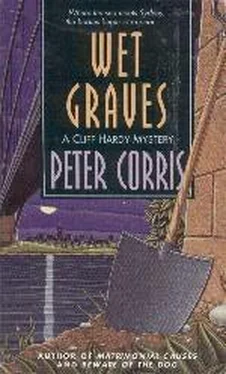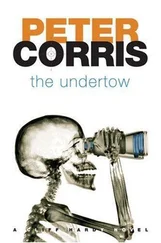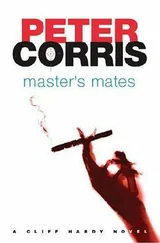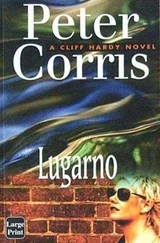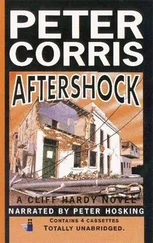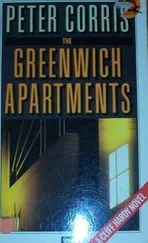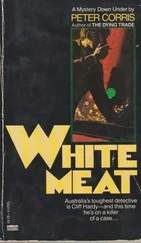Peter Corris - Wet Graves
Здесь есть возможность читать онлайн «Peter Corris - Wet Graves» весь текст электронной книги совершенно бесплатно (целиком полную версию без сокращений). В некоторых случаях можно слушать аудио, скачать через торрент в формате fb2 и присутствует краткое содержание. Жанр: Криминальный детектив, на английском языке. Описание произведения, (предисловие) а так же отзывы посетителей доступны на портале библиотеки ЛибКат.
- Название:Wet Graves
- Автор:
- Жанр:
- Год:неизвестен
- ISBN:нет данных
- Рейтинг книги:5 / 5. Голосов: 1
-
Избранное:Добавить в избранное
- Отзывы:
-
Ваша оценка:
- 100
- 1
- 2
- 3
- 4
- 5
Wet Graves: краткое содержание, описание и аннотация
Предлагаем к чтению аннотацию, описание, краткое содержание или предисловие (зависит от того, что написал сам автор книги «Wet Graves»). Если вы не нашли необходимую информацию о книге — напишите в комментариях, мы постараемся отыскать её.
Wet Graves — читать онлайн бесплатно полную книгу (весь текст) целиком
Ниже представлен текст книги, разбитый по страницам. Система сохранения места последней прочитанной страницы, позволяет с удобством читать онлайн бесплатно книгу «Wet Graves», без необходимости каждый раз заново искать на чём Вы остановились. Поставьте закладку, и сможете в любой момент перейти на страницу, на которой закончили чтение.
Интервал:
Закладка:
“I realise you’ll be recording this, Mr Hardy. I’m not stupid, you see?”
There was nothing to say to that and I didn’t try.
“I want you to go out to a telephone box in William Street-the one opposite the Metropolitan hotel. Have you got that?”
“Yes. When?”
“Now, and don’t contact the police or bring anyone with you when we meet.”
“We’re meeting, are we?” He hung up without answering and I replaced the receiver thoughtfully. I didn’t really want to go up against Lithgow single-handedly, but I also didn’t want to leave him running around loose to kill more people. And I wanted to know why he did it. That’s what he’d be counting on if he knew me. I had a chilling feeling that he did know me and that firmed up my resolve. He could find me whenever he wanted to, which gave me a distinctly uncomfortable feeling. The police had returned my gun. I checked it over carefully before replacing it in the holster under my arm and putting on my sports jacket and a plastic raincoat. The rain was beating steadily against the window and leaking in under the decayed sill. In a situation like this, it was important not to be confused and I wasn’t. I wasn’t doing this for the public or for Louise Madden or because I loved the Sydney Harbour Bridge. I was doing it for me.
My feet were wet before I reached the phone box and I wondered how good a psychologist Lithgow was. Had he contrived to send me out in the cold and rain while he sat by a fire with one of his glasses of vintage red to hand? The lights from the traffic signals and the hotels and the car showrooms blurred in reflection on the wet road. The booth had lost a pane of glass to vandals, and the wind pushed spatters of rain inside, making the shelf and handset oily damp. The phone rang and it almost slipped from my grasp as I snatched it up.
“Hardy.”
“I want to explain.”
“I understand.”
“I wonder if you do. I wasn’t fooled by the stories you planted in the papers.”
Again, it seemed best not to say anything.
“I wasn’t fooled for an instant,” he went on. “It was very crude. But I admit I was hurt.”
“Especially by references to your father.”
His voice was almost a strangled sob. “What?”
“This is all to do with your father, isn’t it?”
“Y… yes.”
“What’s your name?”
“Ballantine.”
I’d read over the names of the injured many times. I hadn’t retained them all, but Ballantine was the second name on the list. I couldn’t go on not responding and my mind raced to find something of sufficient weight to match what he’d revealed. Nothing came. “Ballantine,” I said. “We were working on Goulburn or Bathurst.”
“I told you I wasn’t stupid. I want to talk with you.”
“Okay. Where? When?”
“Where else?”
“On the bridge?”
“I’ll meet you at the midpoint on the westside walkway. You come from the north. It’ll take you about twenty minutes to get there. Come alone, Mr Hardy, and don’t try to trick me. I’ll be watching you, and believe me I know every inch of the approaches and everything about the traffic flow at all times. Any sign that something is amiss will be immediately apparent to me. Do you understand?”
“Yes.”
“I’ve given you my name, which makes me vulnerable to you. Almost as vulnerable as you are to me.”
“I think you want help, Mr Ballantine. I think you were asking me for it when you talked to me in the Pump Street house.”
“Perhaps. I hope I can trust you.”
I said, “You can,” but not before he’d hung up. I hurried back to my car and drove across the bridge. I left the car down near the North Sydney swimming pool and jogged up to the walkway. The rain had stopped and the sky had cleared; the wind was gusty and the water far below was choppy. Traffic on the bridge was very light. Not much of a night for walking. As I moved towards the centre of the bridge I was aware that I had the north end of the walkway to myself. Ballantine knew his business-there were a few joggers on the east side, but foot passengers preferred the side away from the trains. A train rumbled past and I saw a figure, caught in its headlight, approaching from the south side.
We met at about the middle of the span. Ballantine wore a short, padded coat with a fleecy collar turned up. His shoulders were hunched and his head was dipped. It was hard to see his face, but his solid figure was unmistakable. He wore a cloth cap with a short peak. He nodded when we were within a few feet of each other and kept coming. “We’ll walk across and back. This is going to take some time. Have you got a weapon?”
“No,” I said.
“You’re probably not telling the truth, but it doesn’t matter. I’ve got an iron bar in my pocket here. I hope it stays there.”
I turned and we started to walk slowly back the way I’d come. “Whose idea was it to put those filthy stories in the papers?” Ballantine said.
His voice was low and controlled. I couldn’t see any point in lying again. “A policeman named Meredith. He was investigating some of the disappearances — Samuel, Glover and so on. He’d made the bridge connection, or almost, when I blundered in.”
“A policeman, you say? I wouldn’t have credited a policeman with the subtlety.”
I felt I had to go on some sort of attack. “What happened with Glover? The body wasn’t wrapped and it broke free. That’s when things started to fall into place.”
“To answer that I have to tell you how it all began. You see, I was brought up by my father, if you can call it an upbringing. I never knew my mother. She left when I was an infant. My father was crippled, in a wheelchair. He’d been severely wounded at Gallipoli and again in France. From the time I was about ten years old he was almost totally dependent on me. He couldn’t work but we had money. We lived in Drummoyne in a pleasant little house. Father told me he had inherited money, and he also had a service pension. Money wasn’t a problem. I went to a good school.”
We were walking slowly, barely moving, as if Ballantine was going to need hours to tell his story. I was cold, but I wasn’t complaining. I was hearing the truth the way it’s seldom told, painfully and with minute honesty.
“My father preached the military values ad nauseam. He said war was the true test of a man, the only real test. That women understood nothing and were worthless. I believed all these things. You do when you hear them from a man in a wheelchair who has ribbons and medals to back up what he says.”
I nodded. Something about those words seemed immensely significant.
“I turned eighteen in 1944. I’d done cadet training at school and was keen to join up. Father wouldn’t let me. He said he needed me to look after him. I pleaded with him but he wouldn’t relent. I tried to enlist under a false name but they found me out. Father said he’d used his influence with the military authorities to stop me. I couldn’t understand his attitude and we had terrible fights over it. But he did need me. He seemed to get more frail by the day.”
His voice was bitter now and his shoulders even more hunched. I wondered which pocket his iron bar was in.
“I tried to enlist for Korea. They rejected me on medical grounds-a burst eardrum, a heart murmur, they found a lot of things wrong with me. I suspected Father of fixing things again and he didn’t deny it. After that things got worse. He began to taunt me for not having served my country. Over and over again.”
We got to the end of the path and both automatically turned to walk back.
“I had a nervous breakdown. I was institutionalised for a time. Then I went back to take care of Father again and so we went on, for years and years. It wasn’t a real life. No friends, no women. While I was… in hospital, I learned to build boats. There were boatyards around Rozelle and Balmain in those days. I have great talent for it. I’m a very successful yacht builder and restorer. I have a small works in Drummoyne.”
Читать дальшеИнтервал:
Закладка:
Похожие книги на «Wet Graves»
Представляем Вашему вниманию похожие книги на «Wet Graves» списком для выбора. Мы отобрали схожую по названию и смыслу литературу в надежде предоставить читателям больше вариантов отыскать новые, интересные, ещё непрочитанные произведения.
Обсуждение, отзывы о книге «Wet Graves» и просто собственные мнения читателей. Оставьте ваши комментарии, напишите, что Вы думаете о произведении, его смысле или главных героях. Укажите что конкретно понравилось, а что нет, и почему Вы так считаете.
